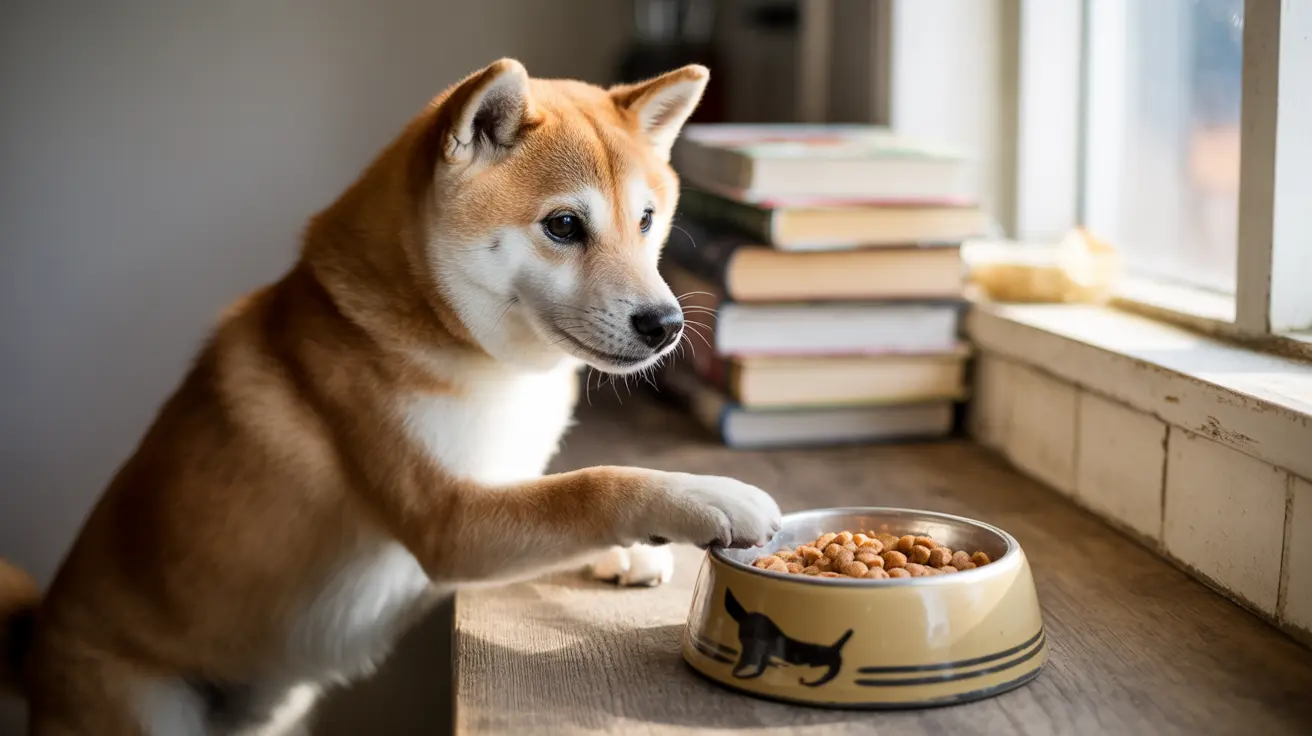If you're a pet parent to both dogs and cats, you've likely caught your canine companion trying to sneak a bite of kitty kibble. While the occasional nibble might seem harmless, the question "Can dogs eat cat food?" deserves careful consideration. This comprehensive guide explores the risks, nutritional differences, and what you need to know to keep your dog healthy.
Understanding why dogs shouldn't eat cat food regularly is crucial for maintaining their health and preventing potential complications. Let's dive into the science behind species-specific pet nutrition and why that tempting bowl of cat food should remain off-limits to your dog.
The Fundamental Differences Between Cat and Dog Nutrition
Cats and dogs have evolved with distinctly different nutritional needs. Cats are obligate carnivores, requiring a diet rich in animal protein, while dogs are omnivores capable of deriving nutrition from both plant and animal sources. This fundamental difference shapes the composition of their respective foods.
Key Nutritional Variances
- Cat food typically contains:
- Higher protein levels (30-40%)
- Increased fat content
- Essential amino acids like taurine
- Higher levels of vitamin A and arachidonic acid
- Dog food, by contrast, features:
- Moderate protein levels (18-25%)
- Balanced fat content
- More fiber and carbohydrates
- Different vitamin and mineral ratios
Health Risks of Dogs Eating Cat Food
While a single stolen bite won't typically cause serious issues, regular consumption of cat food can lead to several health problems in dogs:
Short-term Effects
- Digestive upset
- Vomiting
- Diarrhea
- Bloating
- Gas
Long-term Consequences
- Obesity
- Pancreatitis
- Kidney strain
- Liver issues
- Nutritional imbalances
Preventing Your Dog from Eating Cat Food
Creating physical barriers and establishing feeding routines are essential for maintaining proper nutrition in multi-pet households. Consider these practical solutions:
- Set up elevated feeding stations for cats
- Use baby gates to separate feeding areas
- Feed pets at different times
- Store cat food in secure, dog-proof containers
- Consider automatic pet feeders with microchip recognition
When to Contact Your Veterinarian
While occasional cat food consumption isn't usually an emergency, certain symptoms warrant immediate veterinary attention:
- Severe vomiting or diarrhea
- Lethargy
- Loss of appetite
- Abdominal pain or swelling
- Unusual behavior changes
Frequently Asked Questions
Can dogs eat cat food regularly without health risks?
No, dogs should not eat cat food regularly. The high protein and fat content can lead to obesity, pancreatitis, and other health issues. Cat food lacks the proper nutritional balance dogs need for optimal health.
What are the key nutritional differences between cat food and dog food that make them unsuitable for cross-feeding?
Cat food contains higher levels of protein, fat, and certain amino acids like taurine that cats need but dogs don't. Dog food has more fiber and balanced nutrients specifically formulated for canine health requirements.
How can I prevent my dog from eating cat food in a multi-pet household?
Use elevated feeding stations for cats, separate feeding areas with baby gates, feed pets at different times, and store cat food in secure containers out of your dog's reach.
What are the potential health risks if my dog accidentally eats a large amount of cat food?
Immediate risks include digestive upset, vomiting, and diarrhea. Large amounts can potentially trigger pancreatitis, requiring immediate veterinary care.
How often can a dog safely eat cat food without experiencing negative health effects?
While an occasional bite won't typically cause serious problems, there's no "safe" frequency for feeding dogs cat food. It's best to avoid it entirely and stick to dog-specific nutrition.
Remember, proper nutrition is fundamental to your dog's health and longevity. While the occasional taste of cat food isn't likely to cause serious harm, maintaining a species-appropriate diet is crucial for your dog's well-being. If you have concerns about your pet's nutrition, always consult with your veterinarian for personalized advice.






